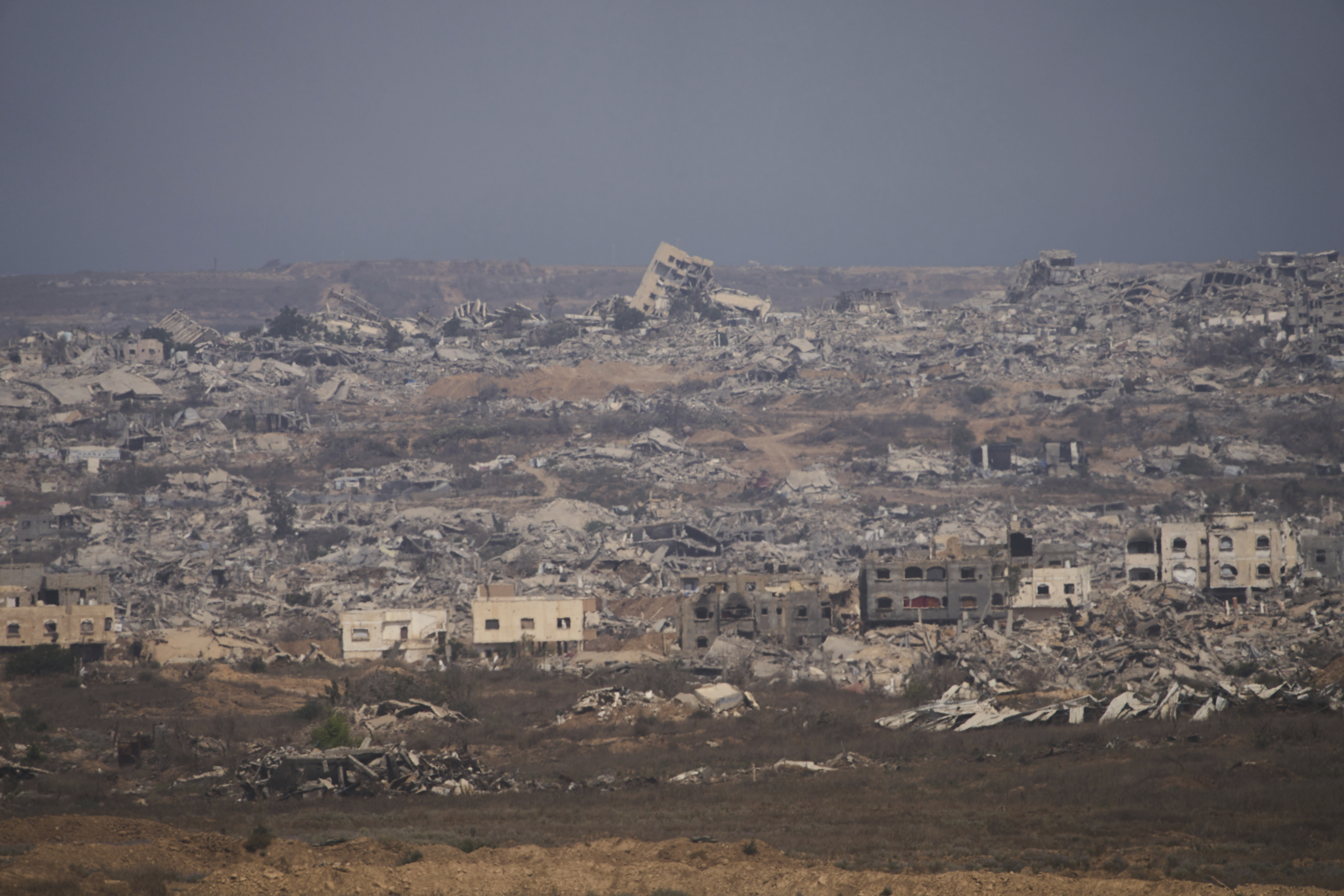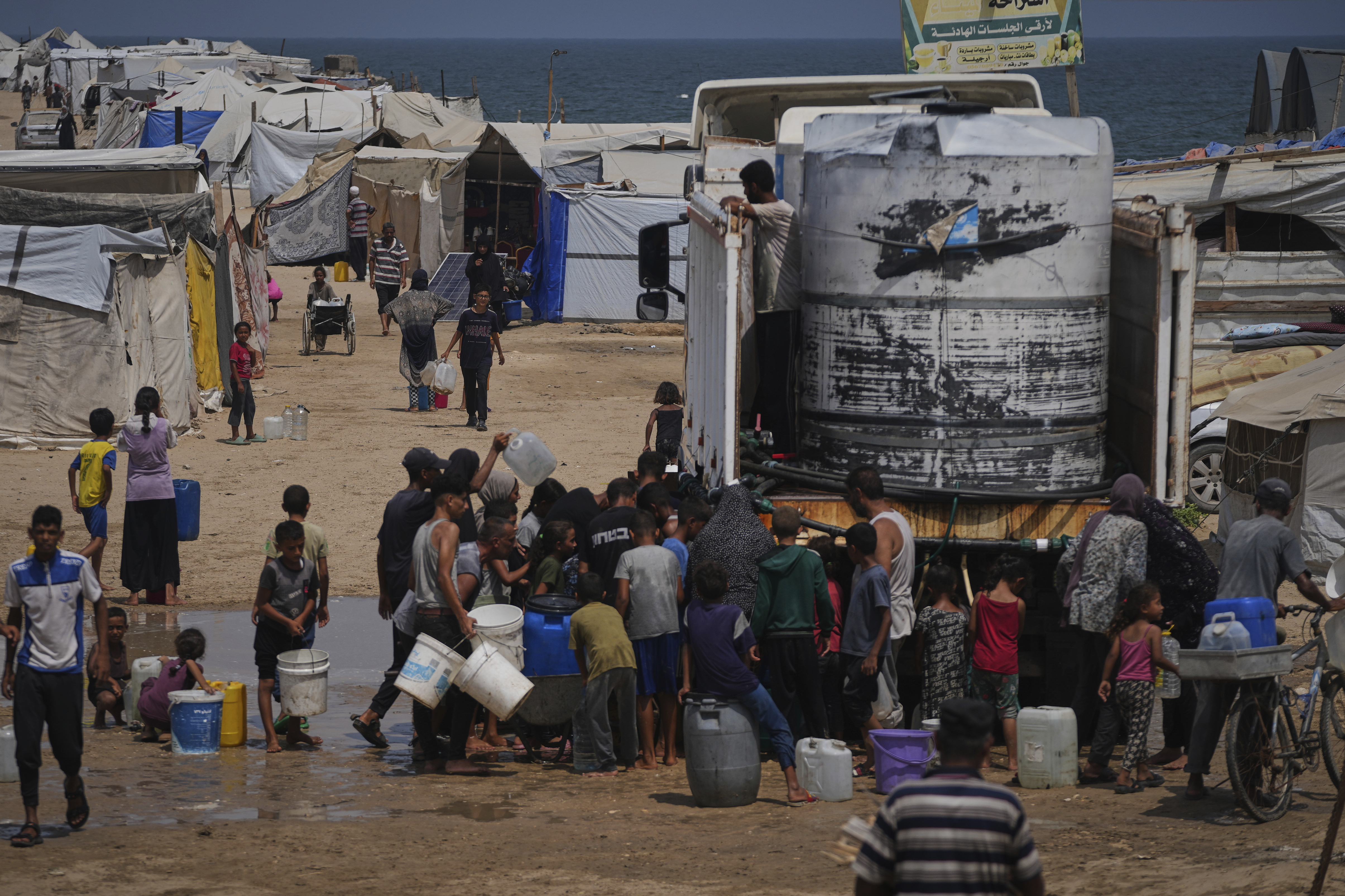
JERUSALEM/GAZA/UNITED NATIONS - Israel's military chief Eyal Zamir on Wednesday approved the main framework of a government plan to expand the offensive in Gaza to areas not yet under Israeli control.
The offensive will later target refugee camps in central Gaza and the southern area of Al Mawasi, where most of Gaza's 2.2 million residents have taken shelter, according to a statement by the Israeli military.
The principles of the plan were approved in a meeting of security officials earlier on Wednesday, the statement said, adding that "the central concept for the plan for the next stages in the Gaza Strip was presented and approved, in accordance with the directive of the political echelon".
ALSO READ: Nations at UNSC criticize Israel’s plan of Gaza City takeover, warns of ‘calamity’
Zamir's approval came three days after Prime Minister Benjamin Netanyahu said the military had been ordered to enter the "decisive stage" of the Gaza war, aimed at seizing the remaining Hamas strongholds in Gaza City, refugee camps in central Gaza, and Al Mawasi's southern area, an order widely condemned amid Gaza's worsening humanitarian crisis.
It also came as Israeli Foreign Minister Gideon Sa'ar told a press briefing on Wednesday that Israel rejects a two-state solution and "will not allow" the establishment of a Palestinian state.
On Sunday, a rare emergency weekend meeting held by the UN Security Council saw widespread outrage at the Israeli plan. Yet the session ended with no resolution as the United States, a veto-wielding permanent member of the Security Council, sided with Israel.
"If these (Israeli) plans are implemented, they will likely trigger another calamity in Gaza, reverberating across the region and causing further forced displacement, killings, and destruction, compounding the unbearable suffering of the population," UN Assistant Secretary-General for Europe, Central Asia and the Americas Miroslav Jenca warned the Council.
On Monday, Turkish President Recep Tayyip Erdogan slammed Israel over Gaza and accused Netanyahu of running a "network of massacres" and seeking to prolong his political survival at the cost of further bloodshed in the region.
On late Tuesday, Egyptian Foreign Minister Badr Abdelatty and his Saudi counterpart Faisal bin Farhan Al Saud held a phone conversation, during which they reiterated rejection of the Israeli plan, calling it "an attempt to deepen the illegal occupation of the Palestinian territories, continue the genocide war against the unarmed Palestinians, undermine their right to self-determination and establish their independent state."
They also regarded the plan as "a blatant violation of international law and humanitarian international law," read a statement released Wednesday by the Egyptian Foreign Ministry.
Meanwhile, Mahmoud Basal, the spokesperson for Gaza's civil defense, told Xinhua at least 41 Palestinians were killed in Israeli attacks across Gaza on Wednesday.
READ MORE: Israel's Gaza takeover plan sparks backlash at Security Council meeting
In southern Gaza, 12 people were killed by Israeli army gunfire while waiting to receive food near an aid center southwest of Khan Younis. In central Gaza, five people were killed and 10 others injured as the Israeli army targeted civilian gatherings near the aid distribution point at the Netzarim axis. Four were killed by Israeli fire while waiting for aid near Kissufim, east of Deir al-Balah, Basal said.
In Gaza City, at least 12 were killed during an Israeli airstrike at the home of the Abu Daf family in the Zeitoun neighborhood, east of the city, and eight others, including five children, were killed when tents housing displaced people were targeted in the Tal al-Hawa neighborhood, south of the city, Basal said.
According to local eyewitnesses, the Israeli army continued to demolish residential buildings in Rafah, Khan Younis, and eastern Gaza, in addition to artillery shelling in the eastern outskirts.
The developments came as a delegation of Hamas leaders, headed by Khalil Al-Hayya, on Wednesday continued its meetings in Cairo with Egyptian officials on ceasefire negotiations in Gaza.
Egypt's Al-Qahera News channel, citing an Egyptian official source, reported that the delegation arrived in Cairo on Tuesday to discuss resuming Gaza ceasefire talks, to reach a temporary 60-day truce agreement.
However, Netanyahu told Israeli broadcaster i24 on Tuesday in an interview that Israel is "not going back to partial agreements," accusing Hamas of "misleading" Israel, without providing details.
Gaza-based health authorities reported on Wednesday eight more deaths from famine and malnutrition in the past 24 hours, including three children, bringing the total number of hunger-related deaths to 235, including 106 children.
The total number of people killed by Israeli strikes since October 2023 has risen to 61,722, with another 154,525 wounded, according to the health authorities.

Israel's far-right Finance Minister Bezalel Smotrich said Wednesday he has approved the construction of 3,401 housing units for settlers in a particularly controversial area of the occupied West Bank.
The homes would be built in the E1 area, a stretch of land east of Jerusalem between the city and the settlement of Ma'ale Adumim. Construction there is seen as especially contentious because it would effectively cut off East Jerusalem from the northern West Bank. Building plans in E1 have been frozen for years, largely due to international opposition.
Smotrich, leader of a pro-settler party in Netanyahu's ruling coalition, said the move was also aimed at preventing the establishment of a Palestinian state.
"Approval of construction plans in E1 buries the idea of a Palestinian state and continues the many steps we are taking on the ground as part of the de facto sovereignty plan that we began implementing with the establishment of the government," he said in a statement.
ALSO READ: Report: Israeli plan to occupy Gaza City to take at least six months
Peace Now, an Israeli settlement watchdog, said in a statement that the Israeli Housing Ministry approved on Wednesday six new tenders for a total of 4,030 housing units in the West Bank. "Netanyahu's government is using every minute to deepen the annexation of the West Bank and block the possibility of a two-state peace," the group said.
The settlements are located in the West Bank and East Jerusalem, territories captured by Israel in the 1967 Middle East war. More than 720,000 Israeli settlers live in heavily guarded communities there, among a Palestinian population of more than 3.3 million.
The settlements are considered illegal under international law, including an advisory opinion by the International Court of Justice on July 19, 2024, which found Israel's occupation of the West Bank, East Jerusalem and the Gaza Strip unlawful and called for Israel to end its occupation "as rapidly as possible" and to provide reparations for the harm caused.
Casualties from the acute lack of food mount as airstrikes and bombardment across Gaza continue to kill, injure and displace people and destroy civilian infrastructure, said UN humanitarians on Wednesday.
The Gaza health authorities reported Wednesday that eight people suffering the effects of malnourishment and starvation, including three children, died in the previous 24 hours.
"Such reports have become a daily occurrence, reflecting the deepening humanitarian crisis and the urgent need for sustained assistance," said the UN Office for the Coordination of Humanitarian Affairs (OCHA).
OCHA said that in the current year, more than 340 children have been admitted for malnutrition treatment at one of five treatment centers in Gaza. As of Aug 5, a total of 49 child deaths from malnutrition had been reported, including 39 children under the age of 5.
After Israel questioned the veracity of Gaza health authorities' malnutrition death reports, Stephane Dujarric, spokesman for UN Secretary-General Antonio Guterres, said at a recent briefing that the world body found it to be true in the past.
OCHA said the United Nations and its partners collected data from more than 900 households across Gaza in July, which indicated continuous trauma leading to mental health issues, including anxiety and depression. Many people are living in informal shelters that are overcrowded, unsafe and lack space and privacy, especially for women and children.
The office said that its humanitarian partners working on protection started providing mental health and psychosocial support for their traumatized care teams in Gaza through "care for carers" sessions.
ALSO READ: UN says Gaza humanitarian situation 'beyond catastrophic'
Households continue to report poor sanitation and lack of clean water, said OCHA, while in southern Gaza, the Israeli-supplied water pipeline, Mekorot, has remained damaged for almost a week now.
The office said UN teams in Gaza collected some more food and fuel from the Kerem Shalom/Karem Abu Salem and Zikim crossings on Tuesday. More than half of the 15 missions coordinated with the Israeli authorities were facilitated, the remaining ones were either denied, impeded or canceled.
OCHA said shelter items are a priority since supplies have run out, exposing people to the summer heat and unprotected when winter comes. "Many tents and tarpaulins need to be replaced ... This is particularly urgent amid the announced expansion of Israeli military operations in Gaza City, which would have catastrophic consequences for people."
The entry of goods has somewhat improved the market situation in terms of both prices and availability, but the amount of aid that can be brought into Gaza does not meet the minimum requirements of people who are starving, the office said.


